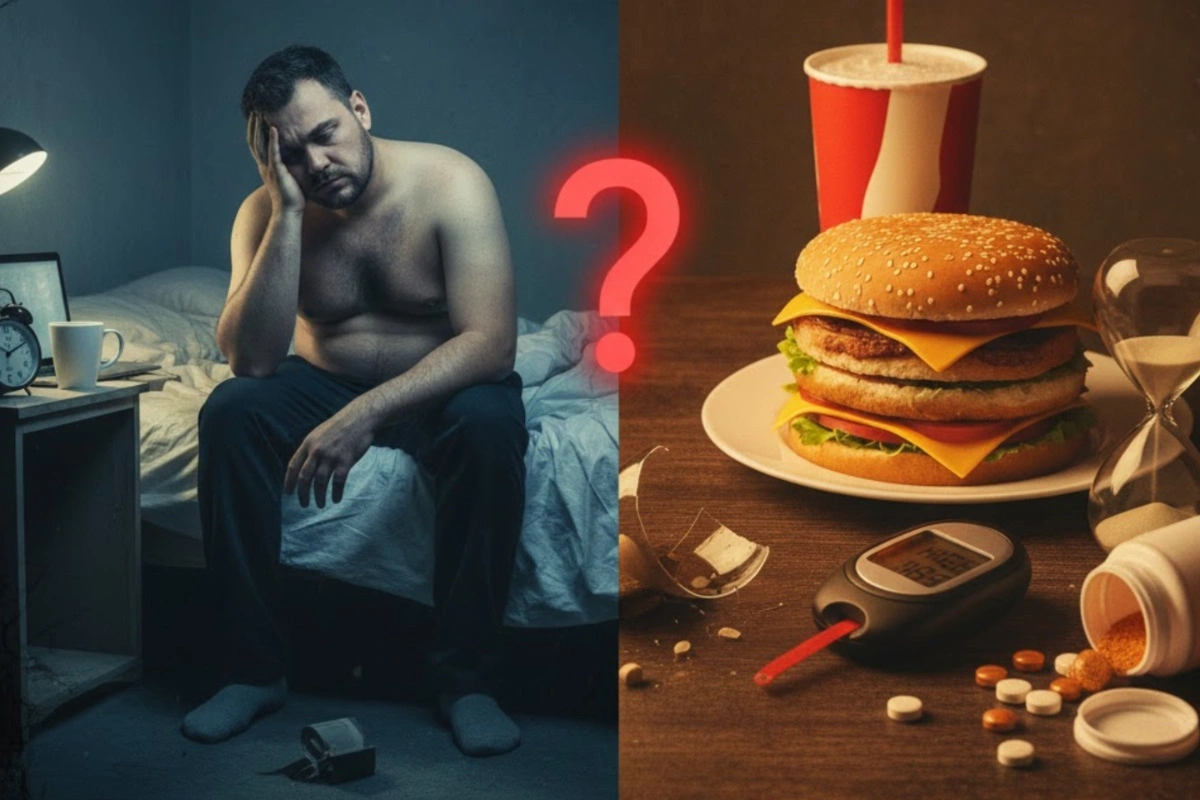Sleep Deprivation: If you think skipping sleep is harmless, it may be time for a reality check. Many of us cut our nights short because of work, stress or scrolling on our phones. But sleeping less than seven hours regularly can quietly damage your health. Experts say it can increase your risk of obesity, type 2 diabetes, metabolic issues and even shorten your life. It sounds scary because it is and the science is clear.
How Sleep Deprivation Can Lead To Weight Gain
Research shows a strong link between short sleep and weight gain. According to PubMed reports, a large study in Japan found that people who slept fewer hours consistently were more likely to become obese over time. Another review in the International Journal of General Medicine found that adults who sleep under six hours tend to have a higher BMI and more belly fat than those who sleep seven to eight hours.
Doctors explain why this happens. When you don’t sleep enough, your hunger hormones go out of balance. Ghrelin (known as the hunger hormone) goes up. Leptin (the fullness hormone) goes down. This makes you feel hungrier, crave high-calorie foods and eat more than you need. According to a Hindustan Times report, this hormonal imbalance can push extra calories into your daily eating without you even noticing. Over time, this leads to fat buildup, especially around the abdomen.
DON'T MISS
Risk Of Type 2 Diabetes Shoots Up
Sleep deprivation also affects the way your body handles sugar. Studies show that sleeping less makes your cells less sensitive to insulin. As suggested by PubMed research, this is called insulin resistance, and it is one of the biggest risk factors for type 2 diabetes.
A long-term Korean study followed more than 7,400 adults for 16 years. The results were alarming. Those who slept five hours or less had a 17% higher risk of developing type 2 diabetes compared to those who slept 6–7 hours. Another global review reported on SpringerLink showed that people sleeping less than six hours have a 28% higher chance of getting diabetes.
Metabolic Syndrome And Other Dangers Caused By Sleep Deprivation
The dangers don’t stop there. Short sleep is linked to metabolic syndrome (a group of conditions including high blood pressure, high blood sugar, excess belly fat, and abnormal cholesterol levels. PubMed research confirms this link. An NIH study also showed that people with irregular sleep patterns had up to a 27% higher chance of developing metabolic problems.
When you sleep less, your body’s internal clock (circadian rhythm) becomes disturbed. Stress hormones like cortisol rise sharply. Experts say this sets off a chain reaction. It triggers insulin resistance, spikes blood sugar, and encourages fat storage. And when you’re tired, you’re more likely to crave sugar and junk food, making the problem even worse.
Losing sleep may feel normal in today’s busy world, but it is doing long-term harm. Sleeping less than seven hours regularly can push your body toward obesity, diabetes and other metabolic issues. It is not just about feeling rested, but also about protecting your long-term health.
So tonight, turn off the screens, dim the lights and let yourself rest. Your body, your mind and your future will thank you for sure.
Disclaimer: This content is for general information only and not a substitute for professional medical advice. DNP India neither confirms nor denies the claims. Always consult a doctor before following any suggestions, treatments or diets.
